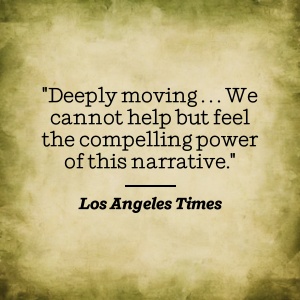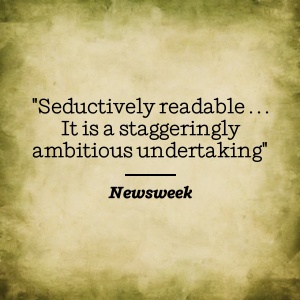Customer Services
Copyright © 2025 Desertcart Holdings Limited
Desert Online General Trading LLC
Dubai, United Arab Emirates


Full description not available



D**S
A Great Read and Important History - 6 stars!
Like other reviewers I had this on my bookshelf for 20 years or more. Even 40 to 50 years after the fact the American involvement in Vietnam is very hard to understand and accept. I have to say that this book totally lives up to its billing. Despite its length there is tremendous pace and drama throughout. It was very hard to put it down. Mr. Halberstam is a great writer and historian.Halberstam profiles the leading military and political figures in rich detail. Each person; Johnson, McNamara, Bundy, Taylor, Westmoreland and so many others are truly three dimensional. He overlaps with the events of the day on the war front and at home to really give the reader a fuller experience than most history books. It is so fresh, alive and virile even today. Considering he published this in 1970 or 1971 without the benefit of more perspective I think it is amazing how spot on he was in his reporting, observations and conclusions. I would give this six stars if I could - both an important history lesson and one of the most engrossing books that I have ever read.Incidentally I read this just after "No Ordinary Time" by Doris Kearns Goodwin. You can't escape that sad reality of how we blew our position in the world in such a short period of time. The arc of American history from 1940 to 1970 is one of ascendency to superpower from humble, inward roots. In only 30 years we squandered a great deal and our position on the planet with arrogance, poor decisions, stubbornness, a lack of vision and weak leadership. Sadly 1990 to 2010 seems to be an echo of that prior period reflecting our inability to learn anything and dooming us to repeating our mistakes.I really hope this continues to be read widely. Maybe it will inspire the the best of the next generation to politics or to write a great book!
M**E
A classic history of American government
The Best and the Brightest is David Halberstam’s story of how the United States came to fight the Vietnam War. Written while we were still at war, the book covers the period from 1961 to 1968. It is not a military history. Halberstam refers to important events in Vietnam, but doesn’t discuss them in detail. They are relevant insofar as they affected American decision-making. Halberstam is open with his opinions about the war: He believes the United States could never have won the war, because we saw it as a military conflict when in reality it was a political conflict, and because we saw it as an anti-Communist conflict when in reality in was an anti-colonial one. However, his book isn’t an argument for his opinions. What the book is really about, and what Halberstam brilliantly depicts, is how the foreign policy establishment of the United States worked in the middle of the 20th century, how men (they were all men) acquired, maintained, and wielded power. “The best and the brightest” is Halberstam’s ironic term for the foreign policy experts who served Presidents Kennedy and Johnson. Halberstam wants to know why they failed so terribly. He concludes that they were blinded by their high opinions of themselves, and refused to consider lower-level, career analysts who tried to tell them they were wrong. Reading his book 45 years later, I don’t know if he is entirely convincing. Based on Halberstam’s own reporting, a case could be made that, by 1961, the men who got us into the Vietnam War didn’t have any good options. The choices they made were disastrous, but we only know that in retrospect. Nevertheless, it’s a mark of a good book that the reader can get a lot out of it without agreeing with the author’s opinions, and The Best and the Brightest is a great book.
P**
Excellent book, but Halberstam needs an editor...
If you are looking for a good intro to Vietnam history, it is hard to miss the glowing reviews given to TBATB by David Halberstam. I read the 750+ page text from cover to cover over the last month and finished yesterday. I was disappointed that none of the Amazon reviewers stopped praising Halberstam's genius long enough to critique his writing. It seems that someone enshrined this book as a classic some time ago, and nobody has noticed what I did - this guy is not a great writer.Halberstam spent 750+ pages on information he could have covered VERY adequately in 600-650 pages. There is a lot of bloat here. One example: page 622 of the Modern Library hardback he describes how McNamara loved to dress in uniforms from early childhood; then on page 629 (seven pages later) he repeats the same exact sentence in a different form. It provides no additional emphasis to the point - just bloat. These examples are too numerous to mention and appear throughout the book.TBATB could have a much better structure. It moves somewhat chronologically (from early Kennedy to mid-Nixon), but jumps around so much as to make one dizzy. There are no chapter titles and no table of contents. You dive in and hold on. Often he will change decades in mid-paragraph for no reason at all. His flow and logic are in there, but he makes you work for it too hard.I got the impression while reading it that Halberstam was so immersed in his Vietnam project, that he had lost perspective - that is probably a characteristic of writers who do groundbreaking work - and badly needed an honest editor. Halberstam was so impassioned in his search for the causes of Vietnam (he had over 2,000 pages of single-spaced notes from interviews alone) that at the end of the years of research, he couldn't quite trim the fat down to make it as coherent as it could have been for the reader.On the positive, this is clearly a watershed book that was exhaustively researched, insightful, and honest. I learned a great deal about Vietnam and am glad I gutted it out through a pithy read.Just wanted to warn other Amazon readers what they are in for if they punch this one up. If you're looking for an intro book, I recommend that you read "A Bright Shining Lie: John Paul Vann and America in Vietnam by Neil Sheehan" FIRST and decide if you want to venture further.p.s. Covering a Halberstam article on my blog [...] reminded me of this review. I wanted to add that David Halberstam passed away on April 23, 2007. We have lost one of the great writers and reports of the post-War era. RIP.
Trustpilot
3 weeks ago
1 week ago